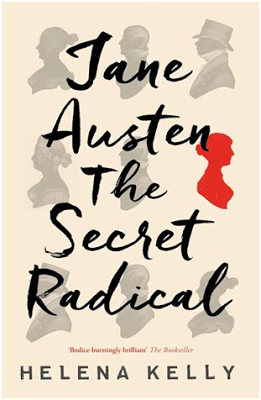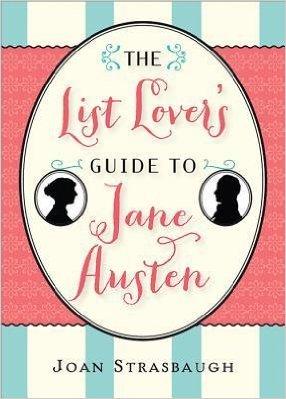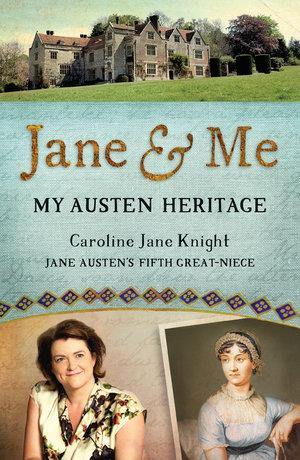
An Interview With Helena Kelly, Author of Jane Austen the Secret Radical
Helena Kelly's book, Jane Austen the Secret Radical, began an interesting debate around the beloved Regency author when it was released in November 2016. Kelly's book explored Jane Austen as a radical, spirited and politically engaged writer, and this was a shock for those people who'd only thought of Jane as a tranquil, smiling woman who spent her time penning purely romantic novels.
After receiving a review copy of this brilliant work, and after reading its original analysis, Jane Austen blogger Maria Grazia ended up with a few questions she wanted to ask Helena Kelly. So she wrote them down and was graciously granted the answers. Here's the interview that resulted.
***
Hello Helena and welcome to our online Jane Austen book club! My first question is … I’ve always thought Jane Austen was rather revolutionary, but now you’ve taken a step ahead of me: a radical?Hello, and thank you for inviting me! The title Jane Austen the Secret Radical isn’t actually mine, but it is a good choice for the book. I don’t know that Austen wanted to overturn things, but she did want to dig down and examine them, to show people how they actually worked, and that’s what radicalism is about, isn’t it, getting down to the ‘radix’, the root of things.
I totally agree with you, of course. But when and how exactly did you come to realize her novels are not simply grand houses, balls and dashing heroes?
Much as I loved – and still love – the 1995 BBC Pride and Prejudice, I was soon introduced to a very different side of Austen. We studied Mansfield Park for A-Level; a novel which has a very un-dashing hero, only one ball, and a heroine who doesn’t end up in the big house. I really struggled with Mansfield Park and I suppose I’ve been trying to bring those two very different sides of Austen into some kind of balance ever since!
This is more a request for confirmation, then a real question. Something I want to discuss with you. I find that Jane Austen’s stubborn wish to write and publish novels is her first political statement and her most revolutionary act as a woman living in that time and that place. Then came her refusal to marry. Weren’t those truly revolutionary acts?
Certainly Austen was stubborn about her writing; hugely stubborn. She had to endure a lot of disappointments – as you probably know, Susan (almost certainly Northanger Abbey) was accepted by a publisher in 1803 but didn’t appear. She wrote to the publishers in 1809, trying to persuade them to publish the novel and her letter is shockingly forceful and really quite aggressive. Jane Austen the Secret Radical begins with her writing that letter. But she was less of a maverick than people often think; she grew up reading quite a number of successful women novelists, several of whom published under their own names. Novel-writing was a reasonably acceptable occupation for women, though (like most female occupations) not highly-valued
. 
With regards to marriage, there’s not any real evidence for the one-night engagement to Harris Bigg-Wither; the ‘proof’ seems to have been pieced together by a niece who wasn’t even born at the time of the engagement. So it’s possible no one ever proposed to Austen at all! Would she have married if the right man had come along? Maybe. But she’d seen enough of the dangers of marriage and the demands of endless child-bearing to have made her cautious.
Among the several serious subjects Austen dealt with in her major novels – feminism, slavery, abuse, poverty, power – which is the most revolutionary and dangerous of all in your opinion?
In Mansfield Park Austen doesn’t just confront the subject of slavery, but of the Church of England’s active involvement in slavery. To take the Church to task like this really was incendiary, and it’s no coincidence, I think, that Mansfield Park is the only one of her novels which wasn’t reviewed on publication. In fact, there seems to have been something of a conspiracy of silence about it.
Which is her most revolutionary novel? What about her most radical heroine, instead?
As above, Mansfield Park – it’s profoundly anti-establishment. The heroine Fanny Price, though, embraces Mansfield Park and everything it stands for. I think the most radical heroine is probably Elizabeth Bennet – she who loves to question, to debate, to laugh at power and challenge authority to justify itself.
I know you teach Austen to hundreds of people of all ages, nationalities and backgrounds. What about one or two tips to poor me attempting to teach Austen – among other classics – to the most difficult audience one can expect, I mean teenagers and mostly boys? 
My students have been overwhelmingly female and I think even men who do enjoy Austen tend not to come to her until they’re older. So many people already ‘know’ what they’re going to find in the novels (grand houses, balls, and dashing heroes, as you say above). I’m always a bit hesitant about telling other people how to teach, but since you’ve asked for advice, I reckon start them off with Persuasion, if at all possible – it has some really manly men in it, with all those naval officers and there’s a great adaptation of it starring Amanda Root and Ciaran Hinds which really foregrounds the war. Go for the bits that aren’t at all romantic and work backwards from there. The popular image does get in the way of the text.
May I ask you what you think of the great deal of Jane Austen fan fiction and film adaptations of the recent years? Do they contribute to the popularity of her work or do they contribute to their misinterpretation?
Both! I’m really torn on this question, to be honest. As I said above, the popular picture of Austen does conceal the text. But many of adaptations and the continuations and sequels and so on are really fun and they make Austen accessible; those aren’t bad things. I’ve just finished reading a book called Lydia by Natasha Farrant which I very much enjoyed and which I think would be a great ‘gateway’ book into the original novels. And then, look at something like Pride and Prejudice and Zombies – it’s absurd but at the same time anyone reading it has read a good three-quarters of Austen’s novel. Plus, of course, it makes explicit the sense of external menace in the book, though Austen’s characters are bothered about the French, not the zombie hordes! But, yes, I suppose I’d like to see less romance, and more of the grittier adaptations, like the 1999 Mansfield Park, directed by Patricia Rozema. The Jane Austen conjured up by the adaptions, etc. doesn’t bear all that much resemblance to the authoress of the novels!
So, in conclusion, why did you feel the need to write your “ Jane Austen The Secret Radical?
As your readers will know, the Bank of England is about to introduce a new £10 note next year, with Jane Austen on. Except it’s not really Jane Austen. It’s an idealized portrait that was commissioned fifty years after she died, and in the background is a picture of a big house which Austen never actually lived in. It’s such a reductive image of who she was and what her novels are doing that I thought it was time for a corrective!

Helena Kelly holds degrees in Classics and English from Oxford and King’s College London. She teaches Austen at an Oxford summer school, and for a programme for American visiting students in Bath. She has taught Austen to hundreds of people, of all ages, nationalities, and backgrounds. Jane Austen The Secret Radical is her first book.
This interview was first published online on Maria's My Jane Austen Book Club blog, and reproduced here with her kind permission.




2 comments
This article is fascinating, thank you very much. Please may I ask how the very different image of Jane Austen come about if there are no primary source images of her?
I find the waxwork of her doesn’t even vaguely resemble the stylised image we have of her. She looks more “human” in modern pictures of her from her waxwork. How did the forensic team reach their conclusion? To be honest I love the “new” image of her and would love to come Bath to see her. Still I have the poster and I absolutely love it.
I read in the article that men get interested in Jane Austen later in life in general that is true of me too. I always thought of Jane as being rather mushy and prefer to read Mary Wollstonecraft and the Bronte girls.
Once again thank you very much.
Yours Sincerely
Derek J. Wood
papagano
Hi Derek,
Good questions! You might find these articles of interest.
This first one explains how Melissa Dring created the new portrait of Jane and which sources she drew evidence from: https://www.janeausten.co.uk/the-jane-austen-portrait/
This second article is about the unveiling of the waxwork which is based on Melissa’s portrait: https://www.janeausten.co.uk/waxwork-2/
I’m glad that you’ve become interested in Jane later on in life. She’s got a lot more to her than just romantic stories – scathing wit and such a skill for satire to name only a couple of things!
I do hope you do come to Bath to see her in the wax!
All my best,
Jenni
Jenni Waugh
Leave a comment
This site is protected by reCAPTCHA and the Google Privacy Policy and Terms of Service apply.